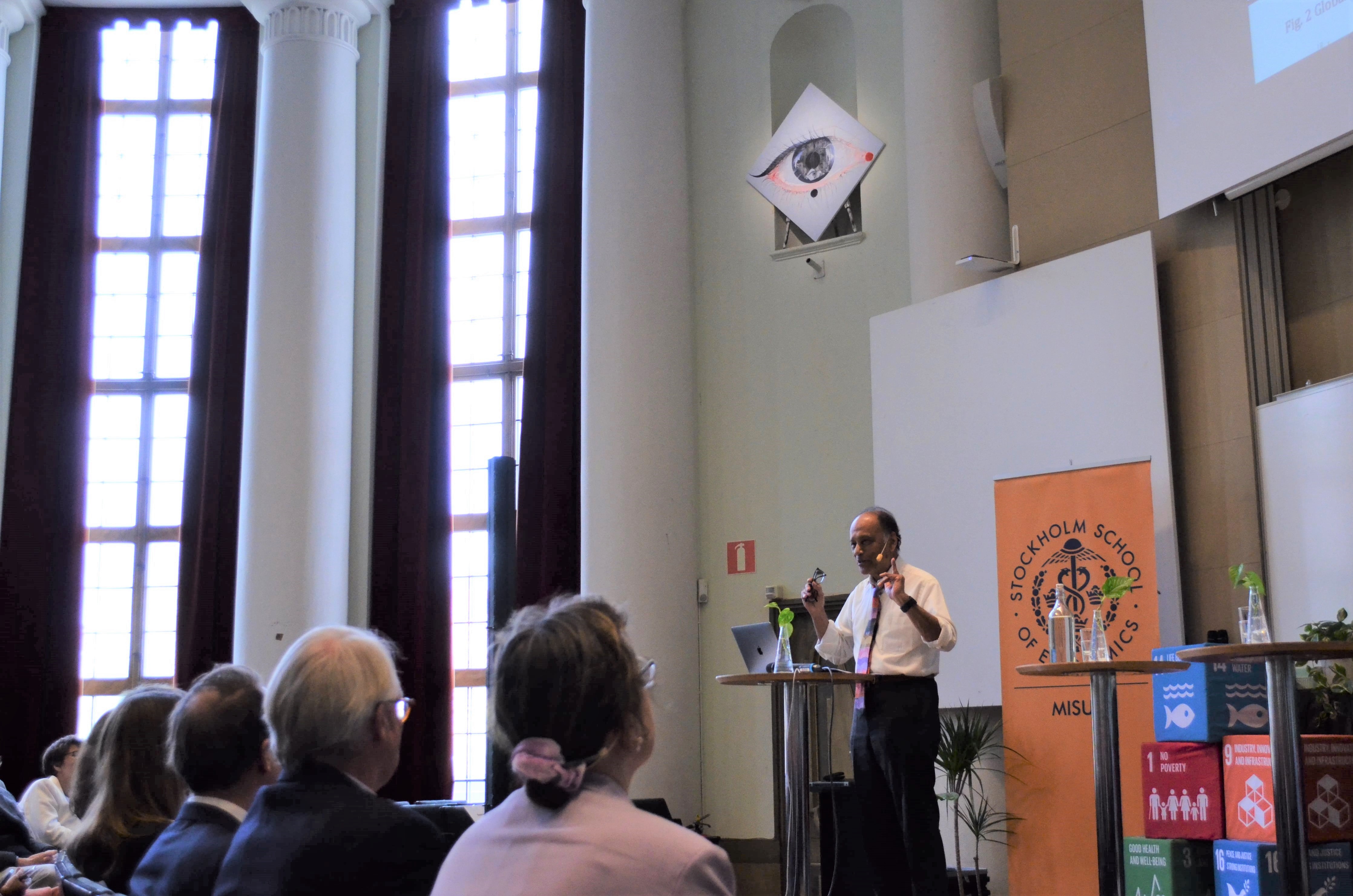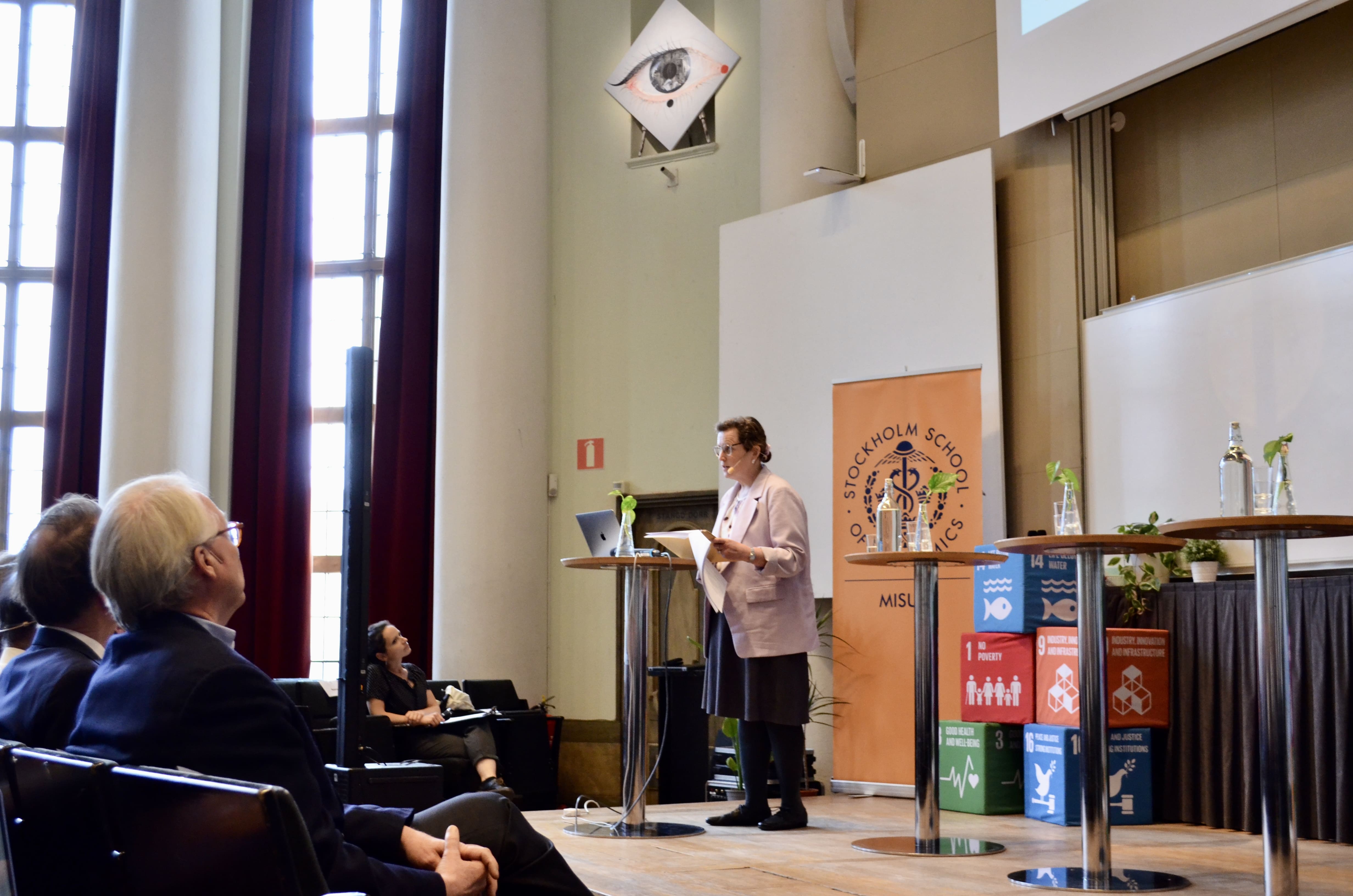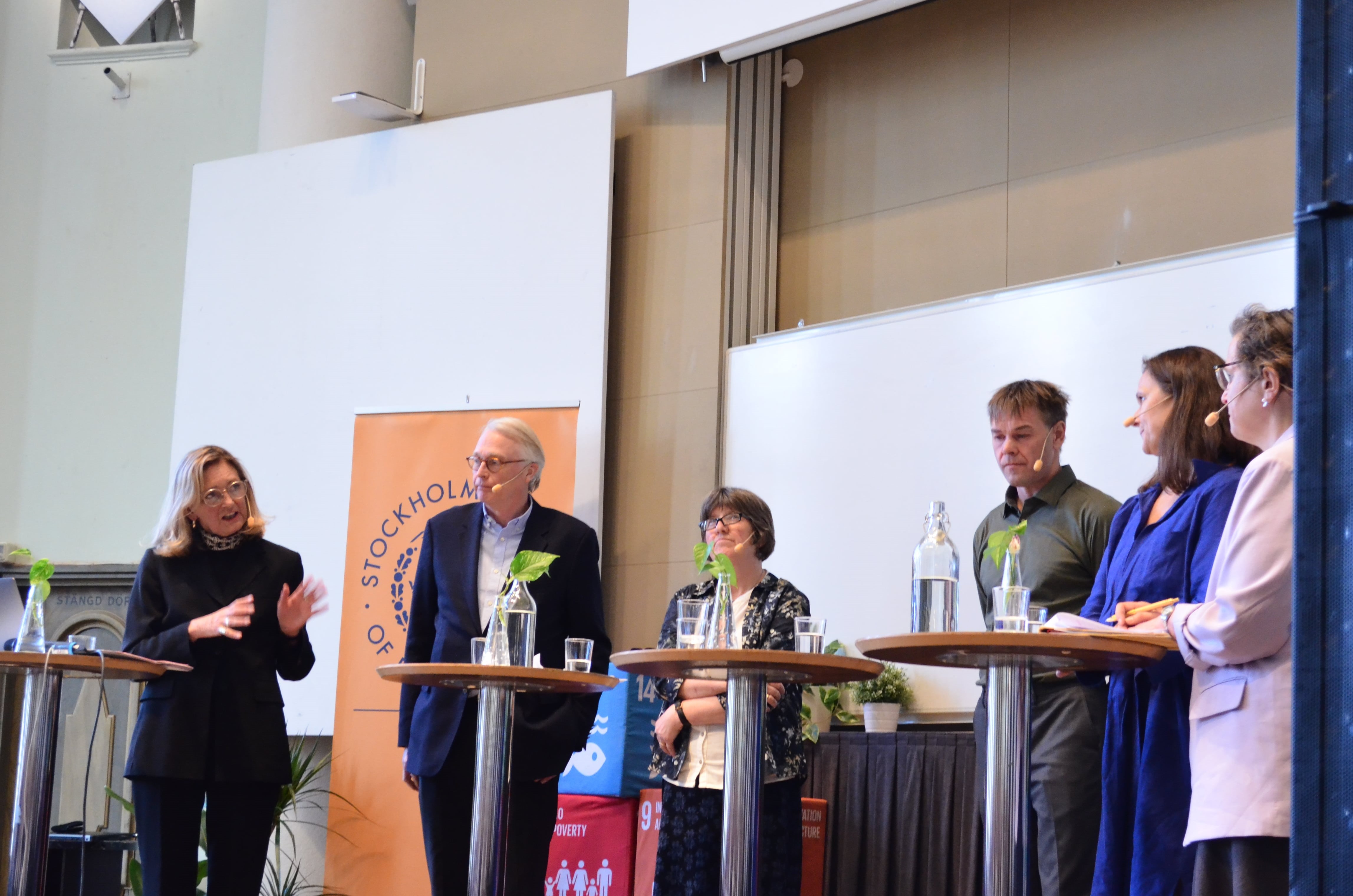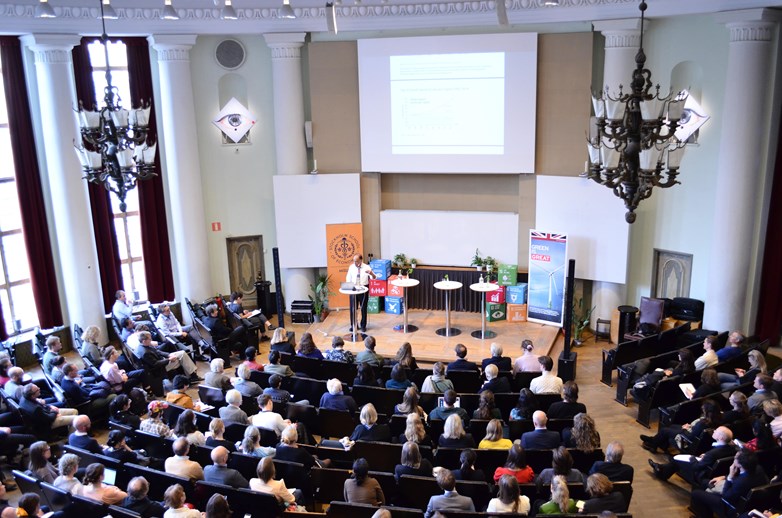The Economics of Biodiversity: Highlights and useful resources
Keynote address by Professor Sir Partha Dasgupta
Frank Ramsey Professor Emeritus of Economics, University of Cambridge
- Global GDP growth has been accelerating since the 1950s. Challenging what we include and what we don’t include in GDP, Prof. Dasgupta noted that the depreciation of capital and biodiversity are excluded and indeed that GDP could be growing even as nature is being degraded. The focus should be on stocks (produced, social and natural capital) rather than flows (GDP).
- Nature supplies us with a “bewildering variety of services”, what we commonly refer to as ecosystem services. When we think about nature we often think about provisioning goods, but to see the economy as embedded in nature we need to consider our dependence on regulating and maintaining services as well. Prof. Dasgupta emphasized that ecosystem services are complimentary rather than substitutable, as sometimes seen in the economics of climate change where the focus is on provisioning goods.
- Prof. Dasgupta concluded the event with a call for a radical change in the way we teach economics, to challenge the assumption that the economy is not subject to the limits of the biosphere, and to recognize the embeddedness of the economy in nature. There is currently too much emphasis on the individual, but we cannot think of ourselves as apart from nature. At SSE, the Dasgupta Review is mandatory reading for the Global Challenges track taken by BSc Business and Economics students.

Presentation from Charlotta Sörqvist
Swedish chief negotiator for the Convention on Biological Diversity (CBD) and chair of the CBD Subsidiary Body for Implementation (SBI)
- Charlotta briefly introduced the new Kunming-Montreal Global Biodiversity Framework adopted at COP15 in late 2022. The Framework is highly science-informed, based on the 2019 IPBES global assessment as well as the 2021 Dasgupta Review.
- New in the Framework is the 2030 mission to “take urgent action to halt and reverse biodiversity loss to put nature on a path to recovery for the benefit of people and planet”, as well as more measurable targets on resource use and mobilization, and a monitoring system to track progress towards reaching the targets.
- The focus at COP16 will be on governments showing their progress in meeting the targets with national biodiversity plans.

Panel discussion
Moderated by Dr Mia Horn af Rantzien, with:
- Carl Folke, Director of the Beijer Institute of Ecological Economics, Royal Swedish Academy of Sciences. Prof. Folke highlighted that the Dasgupta Review is a landmark report that shows how nature is to be included into economic calculations, different from reports rooted in mainstream economic thinking.
- Marie Stenseke, Professor in Human Geography, Deputy Dean at the School of Business, Economics and Law, University of Gothenburg. Prof. Stenseke focused on the importance of local solutions embedded in local knowledge and values for the protection of nature and biodiversity.
- Prof. Bård Harstad, Professor in Economics, University of Oslo. Prof. Harstad discussed different mechanisms for compensating environmental conservation.
- Åsa Mossberg, Senior Sustainability Strategist, AP2. Åsa briefly discussed how AP2 attempts to better integrate biodiversity into its portfolio via targeted sustainable investments, by influencing and aiding its portfolio companies with biodiversity targets, or as a last option by divesting.

Convenors
We are grateful to our event co-hosts, the Beijer Institute of Ecological Economics at the Royal Swedish Academy of Sciences and the British Embassy in Stockholm, for their collaboration.
Mistra Center for Sustainable Markets (Misum) is an interdisciplinary research center at SSE focused on sustainability with competences in economics, finance, sustainable development, business leadership and innovation. Our aim is to develop rigorous knowledge around how markets may best support the transition towards sustainable development.
Sign up for the quarterly Misum newsletter to stay up to date with upcoming events and research news, or follow us on Twitter and LinkedIn.
Images courtesy of Gabriela Gallen-Kallela-Sirén.
